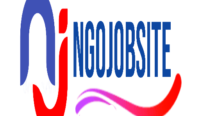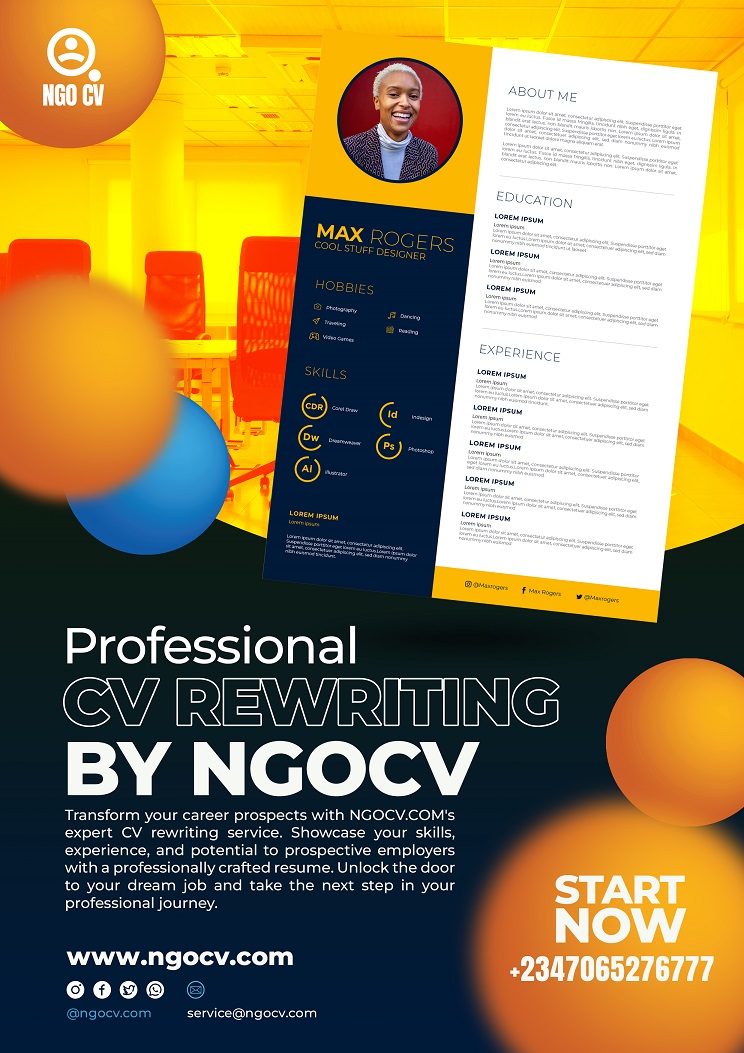Background
Years of insurgency in Northeastern (NE) Nigeria have resulted in massive displacements of populations, widespread violation of human rights, and critical barriers to essential services. The conflict has weakened an already poor education system, further hindering children’s access to education. The emergency in NE Nigeria represents a unique case where the systematic destruction of education is a key objective of Armed Opposition Groups (AOG) insurgents, with the deliberate targeting of schools, teachers and students, particularly girls. It is estimated that over 1,200 schools have been destroyed1 , with many more damaged, looted or occupied by armed groups. Moreover, it is estimated that 2,295 teachers have been killed since 20092 , in addition to the displacement of approximately 19,000 more3 . There are limited programs for out-of-school children to transition to the formal system or to vocational training institutions. In total, there are an estimated 1.4 million girls and nearly 1.3 million boys out of school and facing an uncertain future without education. NE Nigeria faces huge gaps in the quality and size of the teaching workforce. Years of insurgence in the area has led to the death and displacement of teachers in Borno and Yobe. An additional 59,074 qualified teachers are needed in the region to reach the required 40:1 pupil-to-teacher ratio8 . In addition, low levels of literacy and education levels among the female population, as low as 14.9% in Yobe and 18% in Borno9 , lead to a shortage of sufficient numbers of qualified female teachers. This has led to the reliance on an under-qualified workforce of volunteer teachers. It was therefore critical to invest not only in capacity building and support for teachers, but also to provide career growth pathways and certification processes for volunteer teachers. There is a political willingness in the region to collaborate with implementing partners to improve the recruitment and capacity building of teachers. The project had identified different drivers of change at the various levels of the socio-ecological systems, starting with girls themselves. A gender-transformative and multi-sectoral strategy is necessary in order to work towards the ultimate outcome of crisis-affected girls exercising their equal and inalienable rights to quality education and GE in the states of Borno and Yobe in NE Nigeria (1000). Given the positive policy environment, including national political commitments to education for all (e.g. UBE Act; the National Gender Policy; and the National Policy on Gender in Basic Education), the ECG project will address the underlying factors that prevent girls from achieving these rights.
Rationale
The independent evaluation of Girls’ Education Project is a mandatory step mainly to assess overall project performance during implementation period, its results identify key lessons learned for ending program and for the future strategies. The evaluation constitutes an important contribution to the envision program on primary education and potential for scaling up and disseminating knowledge being implemented by Save the Children in its strategies. The independent evaluation will also build on other small studies that the project has carried out during its implementation period.
Objectives
The specific evaluation objectives are:
- To independently verify (and supplement where necessary) record of achievement as reported through interim, and annual reports and defined in the project.
- To assess the extent to which the project performed well which includes considering how well the project met its objectives and how principles of effectiveness and efficiency in relation to delivery of its outcomes.
- Compare EL values of the indicators with the BL;
- What has happened because of GAC’s funding that wouldn’t have otherwise happened; and
- Assess how project’s education and capacity building activities have contributed to the achievement of national priorities.
- Draw lessons learnt – what lessons have been learnt so far which can be applied in the similar interventions in future projects.
- Appraise the project partnership approach (including management structures, communications and relationships) to community implementation, research and advocacy in relation to the project’s achievements.
- Assess how MEAL system and function has effectively contributed towards achieving Girls’ Education Project’s ultimate outcomes.
- What is the level of progress of change from the baseline over the intervention period?
- Who are the key influential in the project’s targeted communities that shape social norms, who do people turn to (particularly adolescents, married and unmarried) when they have problems;
Evaluation Criteria
Relevance
a) To what extent were the outcomes of the Project valid? Did it address the most priority needs of the adolescents – girls, women, boy, and men?
b) Are the activities and outputs consistent with the intermediate and ultimate outcomes?
c) Was the design of the project the most appropriate and relevant to achieve the ultimate outcome?
d) How has the local context in which the project has been implemented changed from the time when the project started?
Effectiveness
a) What role has the project played in improving the education rights and services for the adolescents in the area where the project has been implemented?
b) What were the key factors influencing the achievement or non-achievement of the project outcomes?
c) How are the project services perceived and utilized by the adolescent girls and boys, women, and men?
d) To what extent were the projects’ approaches and methodologies effective in achieving its set objectives?
e) Were the monitoring mechanisms effective in providing timely data to inform programming decisions?
Efficiency
a) Was the training of teachers, caregivers, adolescents, religious leaders, government officials effective?
b) What are some of the other options of possible more effective approaches that the project can explore?
c) Was adequate human, financial and logistical resources applied to delivering project outcomes?
d) Were outputs delivered in a timely way?
Impact
a) What have been the main changes among the adolescents and community attributed to the project (positive or negative), and what are the key factors behind these changes?
Methodology
A mixed approach (quantitative and qualitative) will be employed in collecting the data from the respondents.
Data collection tools will include:
- An interviewer-administered questionnaire for the quantitative household survey. The respondents would be; o Married and unmarried adolescent girls and boys (10-14; 15-19 years of age) in Borno and Yobe; o Caregivers, parents, community members, and spouses of each age sub-group of girls and boys, stratified by age (10-14 and 15-19 years);
- Qualitative key informant interviews with o Province and district level education officials
- Key community members (males and females).
- Trained education staff Focused Group Discussions with
- Adolescents 10-14; 15-19 years and o Caregivers, teachers, and community groups
- KII informant and In-depth interviews with o Parents/caregivers of the adolescents
- Community/religious leaders and traditional healers.
- Government education officials
Scope of Work for the Consultancy
The research will be jointly conducted by an international and a national consultant with clear lines of responsibilities. Below are expected from the national consultant.
- Work closely with the international consultant to develop/reviewing the protocol and survey instruments, providing inputs based on previous similar experience including finalizing the design and sampling methodology; Page 5 of 10
- Translating the protocol and data collection tools into local language (Hausa/Kanuri)
- Working closely with the international consultant to finalize the selection of the sample clusters
- Uploading the quantitative survey instruments into a cloud-based platform and onto smart phones or tablets for the enumerators;
- Conducting all recruitment, training and supervision of enumerators and supervisors required to complete the assignment efficiently, including a piloting of the instruments and last- minute adjustments as needed for improved comprehension of the target population; verifying the enumerators ability to use the smart phones/ tablets and data recording devices for those who are conducting focus group interviews. Enumerators must speak the local language (Kanuri/Hausa)
- Organizing all the logistics required for the survey teams, including the rental of vehicles and drivers
- Leading the implementation of high quality gender sensitive data collection
- Verifying data quality as it is being uploaded into the cloud-based platform
- Transcribing focus group discussions
- Digitize the tools, collect data, and provide transcripts and HH data to SC and international consultant.
- Providing translated transcripts from qualitative interviews;
- Share a draft process report for SC and SCC’s feedback; The Consultant will report to the project MEAL lead in Nigeria Country office.
Qualifications of Consultant
- Minimum of 3 years of experience in coordinating and administering implementation research studies, including gender-responsive data collection and entry, data management and storage, preferably for international non-profit organizations or multilateral agencies with preference for studies in Adolescents sexual reproductive health programs;
- Demonstrated experience in training, facilitation and supervising survey enumerators and data entry team to collect and enter data as per high quality standards;
- Demonstrated experience in setting up relevant data base systems;
- Demonstrated experience in quantitative and qualitative data analysis, particularly as it relates to social norms i.e. power dynamics between male and female members, decision making, and others;
- Knowledge and experience with ASRH issues, social norm change, policies and services systems in Nigeria;
- Knowledge of and experience with gender equality in programming;
- Fluency in English (spoken and written) is a requirement;
- Ability to produce high quality work under tight timeframes;
- Ability to work jointly with the Save the Children Nigeria office and integrate feedback as required.
Deliverables, Time Frame and Level of Effort
The consultancy period will be approximately 43 days over a period of August – November, 2022.
Activities No of days Finalized data collection protocols and procedures 02 days
Translation of tools in local language 02 days
Digitize data collection tools, 3 days
Enumerators’ training and pilot testing 05 days (Yobe) and 05days (Borno)
Data collection *6 LGAs 10 days Yobe and 10 days Borno
Transcribing of qualitative data 04
Submission of draft process report to SC 02
Total number of days 43 days Maximum
Application Package and Procedures
Applications for the consultancy must include following components, for a total of no more than 15 pages (not including appendices, CVs, etc.):
1. Detailed technical proposal clearly demonstrating a thorough understanding of this ToR and including the following:
- Demonstrate previous experience in coordinating and administering studies of a similar nature, including experience with the implementation of data collection activities that are gender-responsive, adolescent-friendly and respect child safeguarding principles;
- Propose a plan for surveying the projected sample population, with adequate consideration for timing of household surveys, travel cost per team of enumerators, supervision of enumeration teams, and quality control;
- Propose steps to be taken for enumerator training, piloting/translation of tools, data collection, spot checking, data entry and management;
- As adolescent mothers are among the key respondents for the household survey, the proposal should detail the informed consent process considering the situation for both male and female adults as well as adolescent girls and boys under the age of 18;
- A proposed timeframe detailing activities and a schedule/work plan (including a Gantt chart) with the proposed number of enumerators, size of enumerator teams and total number of days in the field; and
- Team composition (including sex-disaggregation – male enumerators will interview male respondents and female enumerators will interview female respondents) and level of effort of each proposed team member, if applicable.
2. A financial proposal1 with a detailed breakdown of costs for the study:
i. Itemized consultancy fees/costs for all team members ii. Itemized enumerator training expenses including hall rental/refreshment etc iii. Itemized field data collection expenses including all logistics (vehicle rentals, etc) iv. Itemized administrative expenses v. Itemized light refreshment for children during data collection vi. Validity period of quotations
3. Curriculum Vitae(s) of all proposed field staff outlining relevant experience.
4. Names and contact information of two references who can be contacted regarding relevant experience.
5. A Consulting Firm profile (if applicable). The proposal will be scored on both technical (methodology) and financial (budget) aspects weighted at 70% and 30% respectively.
Ethics Approval and Disclosure/Ownership of Information
The Consultant must obtain and adhere to ethical approval processes of Nigeria before commencement of data collection. Full ethical approval must be obtained before the study commences, if required. This may be obtained in one of two ways as appropriate:
All ownership and copyright for the data collected is held by the G7 Girls education Project and Save the Children Nigeria. It is understood and agreed that the Consultant shall, during and after the effective period of the contract, treat as confidential and not divulge, unless authorized in writing by Save the Children Nigeria, any information obtained in the course of the performance of the assignment. Information will be made available for the consultants on a need to know basis.
Payment Schedule
Payment to the consultant shall be done in accordance with normal procedures of Save the Children. In principal however, consultant fees will be paid upon the satisfactory report of performance.
The payment schedule will be as follows:
1 st payment: after successful digitalizing of tools and uploading of all materials into the cloud-based platform; recruitment of enumerators; and submission of implementation schedule, will be paid 50% of total payment.
2 nd payment: upon successful completion of training and data collection across Yobe and Borno, will be paid 30% of total payment.
3 rd and final payment: upon submission of the final cleaned transcripts, HH data set and process report to SC and international consultant will be paid 20% of the total payment.
SCI reserves the right to withhold payment if deliverables do not meet the requirements outlined in this Terms of Reference.
Safeguarding
Save the Children is committed to actively safeguarding children from harm and ensuring children’s rights to safeguarding are fully realized, and that representatives of Save the Children never abuse their power to exploit or abuse (sexually, economically, etc.) people in project locations. It takes seriously the commitment to promote child safeguarding practices and protect children from harm, abuse, neglect and any form of exploitation as they come into contact with Save the Children supported interventions. In addition, positive action will be taken to prevent child abusers from becoming involved with the study in any way and take stringent measures against any staff and/or associate who abuses a child. Decisions and actions in response to child safeguarding concerns will be guided by the principle of ‘the best interests of the child’. Further, Save the Children recognises that its staff and volunteers are likely to find themselves in a position of power related to project beneficiaries and other stakeholders. Consequently, specific measures will be taken to prevent of sexual exploitation and abuse (PSEA) of project beneficiaries and other stakeholders.
As such, the study must ensure appropriate, safe, non-discriminatory participation; stressing the views of all young girls, boys, (10-19 years) be collected; a process of free and un-coerced consent and withdrawal; confidentiality and anonymity of participants. Environments and working methods should be adapted to youth capacities; time and resources should be made available to ensure that youth are adequately prepared and have the confidence and opportunity to contribute their views. The consultant, all enumerators, and all those coming in contact with children will undergo a training that will cover child safeguarding and PSEA.
Disclosure of Information
It is understood and agreed that the Consultant(s) shall, during and after the effective period of the contract, treat as confidential and not divulge, unless authorized in writing by Save the Children, any information obtained in the course of the performance of the Contract. Information will be made available for the consultants on a need-to-know basis. Any necessary field visits will be facilitated by Save the Children staff.
Essential Criteria Yes/No
- Agrees to comply with Save the Children standard policies and procedures as stated in the RFQ or Invitation to Tender (ITT) document
- Successfully completed a bachelor’s degree in a relevant area, such as social sciences, development studies, or in specific technical areas such as education, public health, nutrition, food security, etc.
- Provides a CV and cover letter, explaining relevant experience and relevant reports of previous work minimum of 3.
- Provides brief description and evidence (attached copies) of up to 3 relevant services provided to other actors (either INGOs, International Organisations or donors), including the year of service and an official email address to contact as a reference
- A ‘no’ in either of these boxes will result in immediate disqualification.
Capability Criteria (technical) Max. 60
- Evidence of minimum of three years’ experience designing and carrying out high-quality assessments, baseline, mid-terms and end line studies, and midterm and final evaluations, for one or more of the following thematic areas: Child protection, Education, Health and Nutrition, = 5points
- Evidence of experience working in development and/or humanitarian settings 5 points
- Evidence shows strong training and experience in quantitative and qualitative data collection methods and analysis 5 points
- Evidence of knowledge and experience with a range of statistical and qualitative data managing software and approaches (such as SPSS, EPI Info, Stata, NVivo, Atlas Ti, KOBO Toolbox, ODK or other similar software) 5 points
- Evidence proves strong command of the English language, both written and verbal with strong report writing and documentation skills 5 points
- Evidence of working experience in Nigeria or similar contexts 5 point
- Provided brief description (200 words or less) of steps the consultant will take to ensure the quality of the services you would provide is of consistently high standards [5 marks for providing a highly satisfactory response, 3 marks for a satisfactory response, and zero marks for not providing one or providing an unsatisfactory response] 5 points
- Provided brief description (200 words or less) on experience in inclusive and ethical child participatory methods of data collection [5 marks for providing a highly satisfactory response, 3 marks for a satisfactory response, and zero marks for not providing one or providing an unsatisfactory response] 5 points
Sustainability
- The consultant demonstrates experience and understanding of local context and community. 10/10 – Consultant demonstrates a strong understanding of local context and community 5/10 – Consultant demonstrates satisfactory understanding of local context and community 0/10 Consultant doesn’t provide confidence that they have an adequate understanding of local context and community 10 Points
- During the interview, the consultant demonstrates in-depth knowledge of assessments, studies and evaluations, in terms of their design and implementation, which will be assessed and scored by a panel of experts 10 points
How to apply
Complete applications should be submitted electronically through Email ID: [email protected]
REF: PR90940-NIG-MAID-Consultancy: ‘G7 Girls education Project End line Application’
DEADLINE: 24TH JULY, 2022 @ 23.59 Hours




